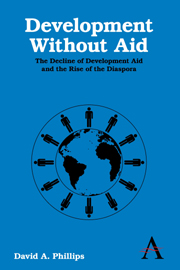Book contents
- Frontmatter
- Contents
- List of Acronyms
- Acknowledgments
- 1 Introduction: Motivation and Perspective
- 2 What Is Foreign Aid, Who Does It, Why and How Much Is There?
- 3 How Far Has Development Aid Been Effective?
- 4 Why Has Development Aid Done So Little?
- 5 Changing the Dynamics of Development
- 6 “New Aid”: New Ways to Promote and Finance Development?
- 7 Another Pathway Out of Poverty?
- 8 Exit Strategy – Replacing Foreign Assistance
- 9 Postscript
- Notes
- Index
3 - How Far Has Development Aid Been Effective?
Published online by Cambridge University Press: 05 July 2013
- Frontmatter
- Contents
- List of Acronyms
- Acknowledgments
- 1 Introduction: Motivation and Perspective
- 2 What Is Foreign Aid, Who Does It, Why and How Much Is There?
- 3 How Far Has Development Aid Been Effective?
- 4 Why Has Development Aid Done So Little?
- 5 Changing the Dynamics of Development
- 6 “New Aid”: New Ways to Promote and Finance Development?
- 7 Another Pathway Out of Poverty?
- 8 Exit Strategy – Replacing Foreign Assistance
- 9 Postscript
- Notes
- Index
Summary
We, Ministers of developed and developing countries responsible for promoting development and Heads of multilateral and bilateral development institutions … resolve to take far-reaching and monitorable actions to reform the ways we deliver and manage aid … we recognize that while the volumes of aid and other development resources must increase to achieve these goals, aid effectiveness must increase significantly as well to support partner country efforts to strengthen governance and improve development performance.
Paris Declaration on Aid Effectiveness (2005)Foreign aid can thus do no more for development than to reduce somewhat the cost of a resource (capital) which is not a major factor in economic development.
Peter T. Bauer (1984)The bare facts about foreign aid give few grounds for expecting much in the way of achievement. The effectiveness of aid has indeed been a continuing and controversial issue for 50 years and an entire literary genre is devoted to it. As mentioned earlier, the first decade of the 2000s saw unprecedented energy aimed at assessing its value. The Paris conference of 2005 singled out improving effectiveness as the principal objective of aid reform, followed up with further declarations in Ghana in 2008 and Busan in December 2011 which have in turn led to extensive evaluation efforts. Major international conferences on aid evaluation such as one in Mexico in June 2011 are being held with increasing frequency.
- Type
- Chapter
- Information
- Development without AidThe Decline of Development Aid and the Rise of the Diaspora, pp. 37 - 64Publisher: Anthem PressPrint publication year: 2013



